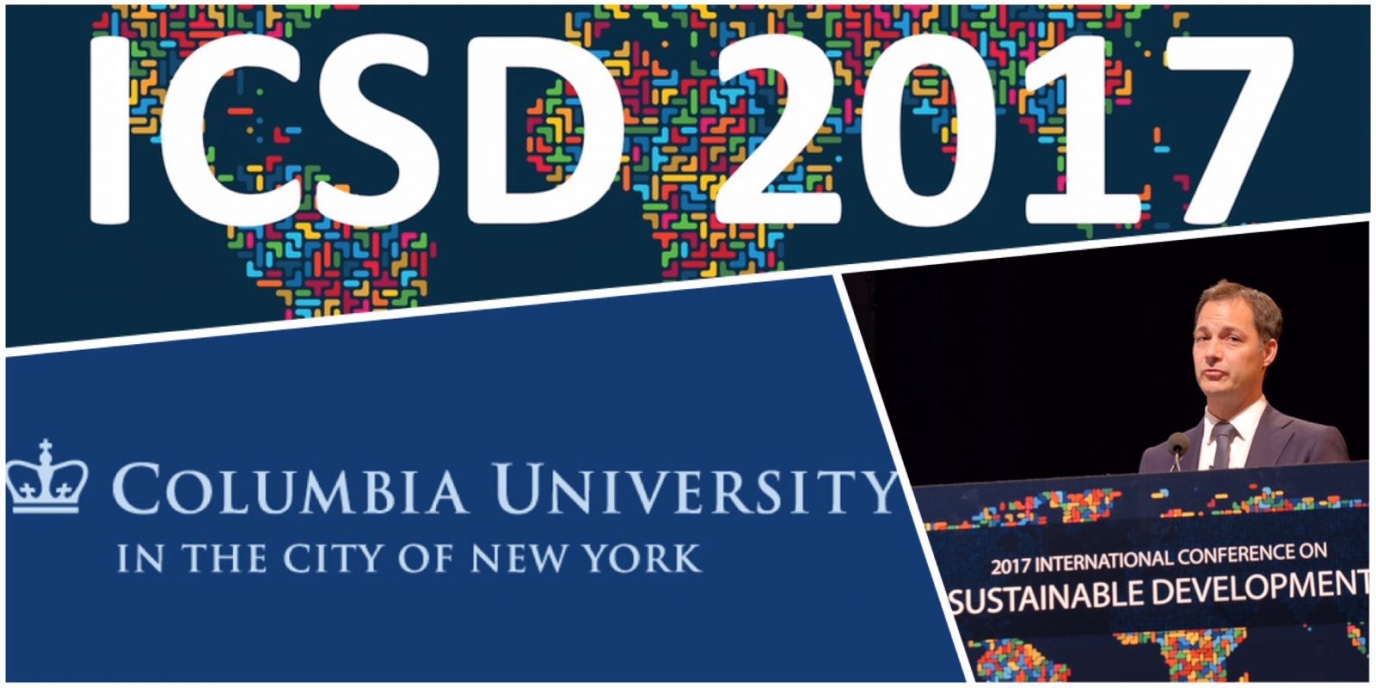Discours Vice-Premier ministre Alexander De Croo - Columbia University, New York

When people reflect on finance for development, they immediately start talking about Official Development Assistance. Is ODA really the key to unlock development? My proposition today is that it is not.
Let me start by looking at two large countries in Sub Saharan Africa: Ethiopia and the Democratic Republic of Congo. Two countries with roughly the same surface and population. When both countries came out of conflict at the end of the 1990s, their GNI per capita was more or less the same, about 100 USD. Fifteen years later, the Congolese GNI per capita stands at 400 dollars; the Ethiopian at 700.
If you apply traditional ODA-thinking, you would have to conclude that Ethiopia has received significantly more ODA than the DRC over the past fifteen years. But that is not true. Quite the opposite has happened. How come? We all know the answer. Ethiopia’s human rights track record is questionable, but at least its government has embraced steady economic governance, whereas the DRC has been a catastrophe across the board.
So, there is no direct equation between financing and development.
Development is first and foremost about a stable environment. It is about political will. A government that is genuinely interested in furthering the well-being of its citizens. The Ethiopian government at least has shown an interest in sound economic policies. The Congolese regime couldn’t have cared less.
Sound policies. Let me give you another example. One of Deng Xiaoping’s largest reforms at the end of the 1970s was to grant Chinese farmers the freedom to keep any surplus harvests above the fixed quota they were obliged to sell to the state. The farmers were allowed to trade these surpluses in local markets. The effects of Deng’s reforms were nothing short of spectacular. Agricultural output rocketed, farmers income tripled and living standards improved on a massive scale. The simple idea of granting a little freedom to farmers, improved the lives of tens of millions of people.
Governance, political will and sound policies. Those are the preconditions for sustainable development. Financing will only produce sustainable development if the governance environment allows for it.
Now, does that mean finance is irrelevant to development? Of course not.
To achieve the SDGs, we will need both large scale public and private sector investments. Most middle-income countries should be able to achieve this through domestic resource mobilization, foreign investment and access to capital markets. Moreover, some of these countries attract vast amounts of remittances.
For many least developed countries, however, the absence of an enabling environment inhibits any appetite for private sector investment, causing LDCs to remain heavily dependent on external financing. But that will not suffice to achieve the SDGs. Because donors simply do not have enough ODA at their disposal. Public finance will never achieve the SDGs.
That is why donor efforts should aim to leverage private investments. That is why the Belgian Development Finance Institution has currently invested more than 900 million USD (750m euro) in private sector development in the Global South. To increase these funds, I have recently opened the Belgian DFI to private capital.
And these private investors not only bring cash. They bring a totally different mindset, based on the notion of profit. Profit drives results. Profit achieves impact. Because, let’s be honest, donor governments are never really quizzed about impact. Our taxpayers are not the beneficiaries of our development programs and projects. Private stakeholders, in contrast, are much more bound to hold donors accountable for results, simply due to the 'return-on-investment’-oriented character of the financing they provide.
So, leveraging private investment, rather than public financing, should be the name of the game. That is why ODA in its current conception has become an outdated metric for the SDG-era. The concept of ODA is 50 years old. It is outdated because it focusses on the quantity of public financing. Such input-thinking will not help us to achieve sustainable development.
So if not quantity, then what?
A new, 21st century conception of ODA needs to focus much more on leverage. Like venture capital, ODA’s success should be measured by its yields, not by its initial investment. ODA as a hedge fund, so to speak.
Furthermore, ODA should serve as a means to partner up with private actors. To raise more finance volume, but more importantly, to increase focus on sustainable results and impact.
And finally, values are more important than volumes. A rights-based approach should be central to any policy for achieving the SDG-agenda. The SDG-agenda is value-driven. So should be our development policies. How can we help the poor in places that are badly governed? That is the challenge of the next decade. That is the question we need to answer if we want to deliver on the Agenda 2030.
Pouring in more money is not the answer. My answer is investing in empowerment and human rights.
Genuine sustainable development is about girls not being forced to marry, and becoming an entrepreneur.
It is about free enterprise.
It is about checks and balances and people being able to hold their governments to account.
Accountable governments will improve governance. Accountable governments will show political will and will develop sound policies, these are preconditions for sustainable development. And that is why achieving the SDGs is not about finance. It is about empowerment and individual freedom.


